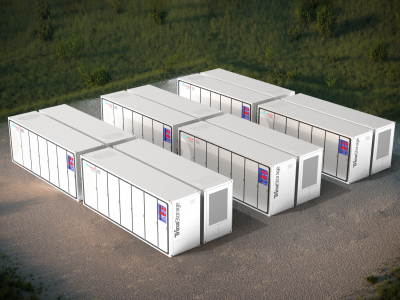MIT researchers develop new light responsive thermal battery material
MIT researchers have developed a new phase change material (PCM) that is triggered by pulses of light. Able to store and release thermal energy, this proof of concept new research could be used in the future as a light-triggered thermal battery for energy storage.
PCMs are common in the world of thermal storage, and the concept is simple. Input heat changes the phase of the material — melts the material from solid to liquid — and this causes the material to store energy. When the cooling PCM solidifies, the phase change — liquid to solid — releases the stored energy as heat. This is the same concept used for molten salt thermal storage applications.
The disadvantage of thermal storage PCMs is that controlling when they pass through their phase change temperature is difficult to control and requires large amounts of insulation. This new thermal storage chemistry uses a hybrid material that includes a light sensitive component: made by blending an organic compound that responds to pulses of light with fatty acids, this creates molecular “switches” that change shape in response to light.
By using pulses of ultraviolet light to turn on these molecular switches, the PCM will stay melted far below its original melting point. When exposed to another pulse of light, the phase change back to solid is triggered and the stored thermal energy is released.
This new thermal storage chemistry is still in the proof of concept phase and years away from commercial use. As it stands, there are no immediate plans to explore its usage in large-scale energy storage applications.Its current properties — the ability to store its stored thermal energy for approximately 10 hours before release — is still causing excitement.
If you want to know more about this and other topics directly from end users of energy storage technologies join us at one of these annual events: The Energy Storage World Forum (Grid Scale Applications), or The Residential Energy Storage Forum, or one of our Training Courses.




